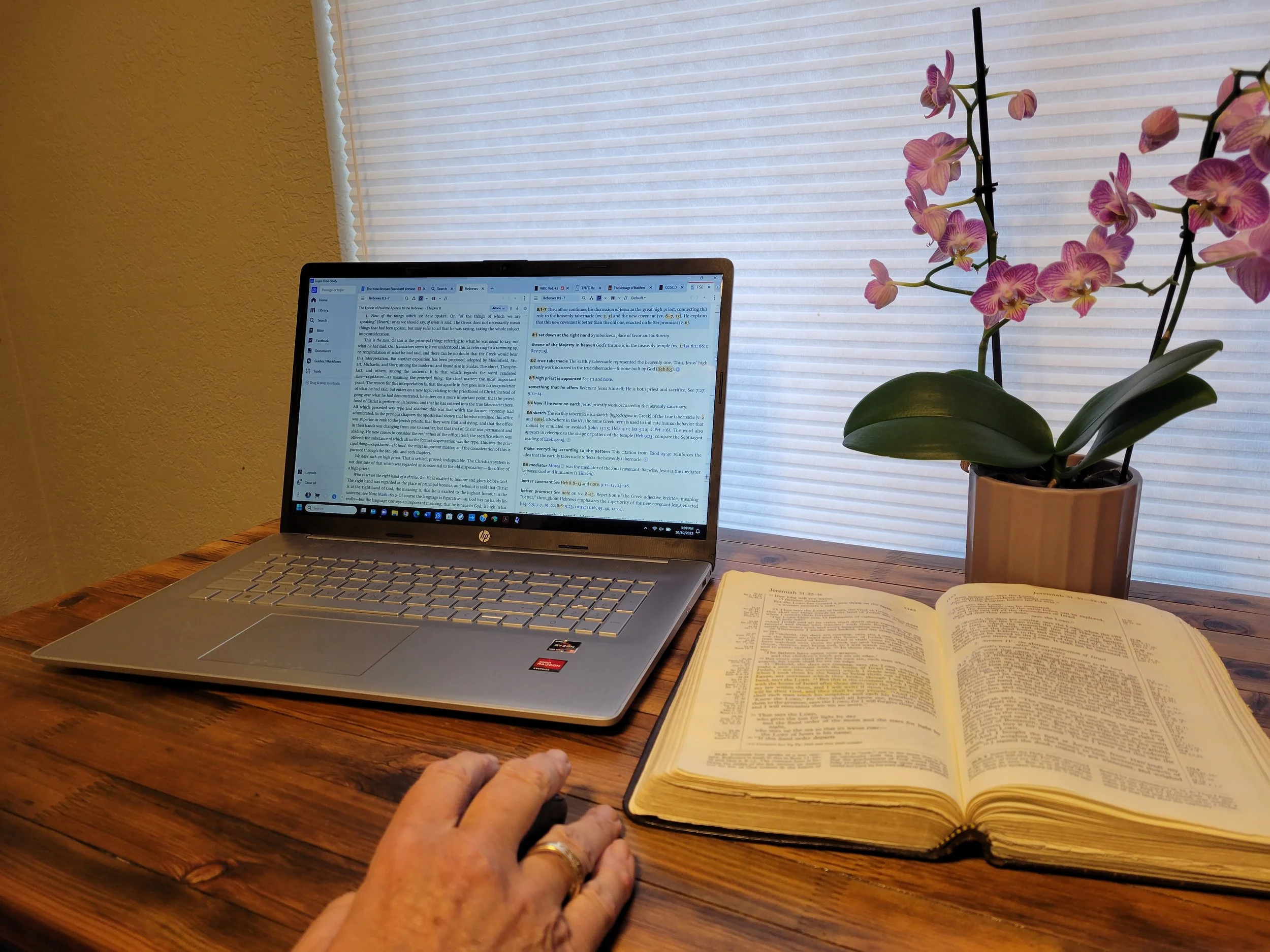Luke 24:30 When he was at the table with them, he took bread, gave thanks, broke it and began to give it to them. 31 Then their eyes were opened, and they recognized him, and he disappeared from their sight. 32 They asked each other, “Were not our hearts burning within us while he talked with us on the road and opened the Scriptures to us?” (NIV)
As Cleopas and his companion (wife?) spoke with the risen Jesus, before they recognized Him, Jesus revealed all the Scriptures pointing to the necessity and meaning of His death, and the assurance of His resurrection. When He did that, their hearts burned. Of course, the central point of Luke’s narrative was the resurrection of Jesus, but the power of Scripture should not be minimized.
When did we last feel the power of Scripture filling our hearts until they burned? When did we last long to hear the Word proclaimed? Is reading and studying the Bible an exhilarating journey into the heart of God or a weary task to be accomplished? Do we feel invited, or do we feel shamed in exploring Scripture? I’m not interested in shaming in this blog, but I’m very interested in inviting a deeper and living appreciation of Scripture here.
The key passage relating to our view of Scripture is found in Paul’s second letter to his younger companion, Timothy:
2 Timothy 3:16 All Scripture is God-breathed and is useful for teaching, rebuking, correcting and training in righteousness, 17 so that the servant of God may be thoroughly equipped for every good work. (NIV)
Traditionally, we have seen this as a declaration of the complete reliability of Scripture. We have asked how it is inspired. This question has led to competing theories about inspiration. (1) Reducing inspiration to an often-rancorous debate has not been helpful. Moreover, the debates miss the beauty of Paul’s words. Paul said that God breathed into the Scriptures. That’s significant!
First, Paul is talking about the Old Testament since there was no New Testament when he wrote Timothy. Adding the yet to come New Testament gives us a unified story from creation to new creation, without a barrier between the two. Paul’s point is that God breathed into it all. That is why it equips us and is so profitable. Notice some passages where God has breathed.
Genesis 2:7 Then the Lord God formed a man from the dust of the ground and breathed into his nostrils the breath of life, and the man became a living being. (NIV)
Human life began with the breath of the Creator, for God’s breath is the breath of life.
In John’s story, the risen Jesus came to His disciples in order to bring the Holy Spirit into their very being. Notice how that happened:
John 20:22 And with that he breathed on them and said, “Receive the Holy Spirit…” (NIV)
In Luke’s telling, the Spirit comes to the disciples in Jerusalem, fifty days after Passover (Pentecost). As you read this, understand that the Greek word (pnoē) can be translated either breath or wind, and the word (biaios) translated as violent in the NIV can mean strong.
Acts 2:1 When the day of Pentecost came, they were all together in one place. 2 Suddenly a sound like the blowing of a violent wind came from heaven and filled the whole house where they were sitting. 3 They saw what seemed to be tongues of fire that separated and came to rest on each of them. 4 All of them were filled with the Holy Spirit and began to speak in other tongues as the Spirit enabled them.
One way to look at Pentecost is that the sound of a strong rushing wind outside, tells us that God strongly breathed into the 120 inside and the Holy Spirit rushed into them. God’s breath in them gave them tongues to proclaim good news to all. That same strong breath entered those who wrote the Word of God.
The Bible is not dead letters on papyrus, parchment, or paper (see Hebrews 4:12). Rather it is filled with the life-giving breath of God. It is not magical, but it is profoundly spiritual and can fill our spirits. Scripture is vital for us, but more, it brings the joy of the Lord into us. God’s breath-filled Word is not an end to itself, but a powerful invitation to the risen, ascended, and exalted Messiah who can breathe the blessed Holy Spirit into our lives. So, yes, our hearts can be burning as we come before the Word!
Tim Kelley
(1) For a discussion of these theories see, https://www.gotquestions.org/inspiration-theories.html

